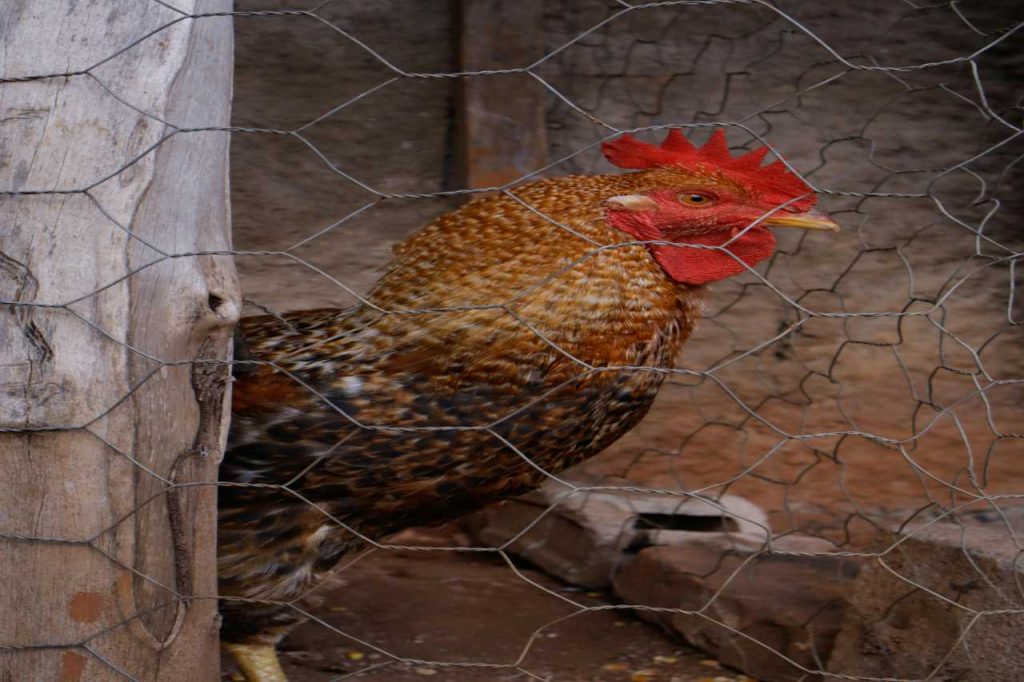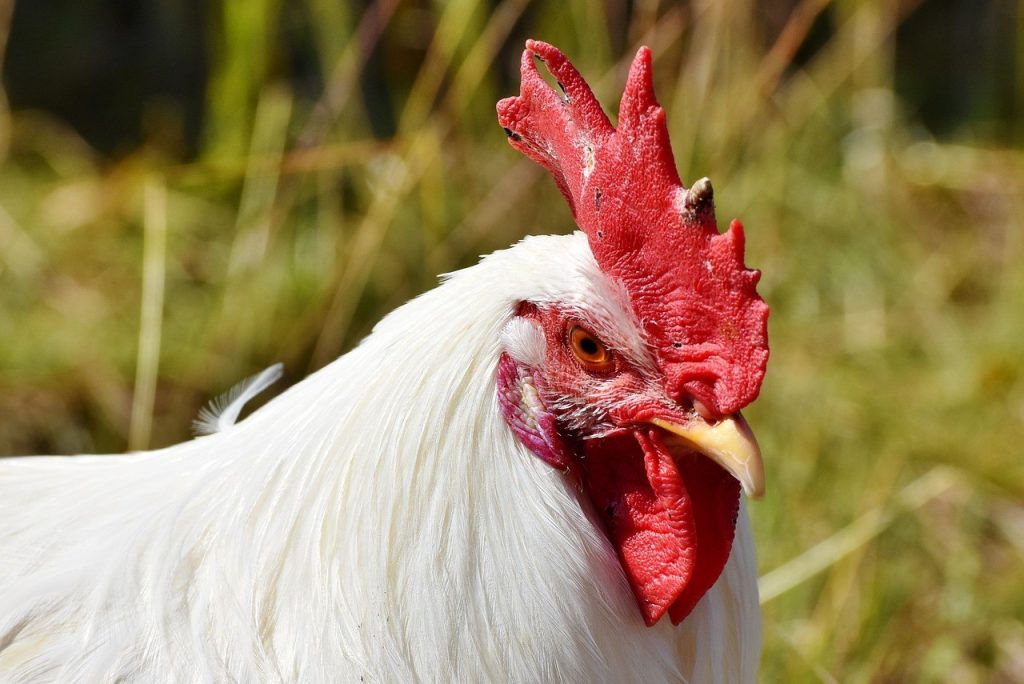If you’re a backyard farmer or have a small flock of chickens, you might be surprised to learn that they can be a big help when it comes to composting. Chickens can turn food scraps, garden waste, and organic matter into nutrient-rich compost while providing additional benefits to your garden and reducing waste. Let’s explore how you can integrate chickens into your composting system and maximize the benefits of your flock!
How Chickens Can Help with Composting
Chickens are natural foragers and have a tendency to scratch, peck, and dig through organic material. When integrated into your composting system, they can help break down organic waste, speed up the composting process, and create healthy soil for your garden. Here’s how:
1. Chickens Help Aerate the Compost
One of the key elements of successful composting is oxygen, which is required by the microorganisms that break down organic matter. Chickens love to scratch around in piles of organic material, which helps to aerate the compost and introduce air into the pile.
- Benefit: The scratching action ensures that the compost remains loose and prevents it from becoming compacted, which can slow down decomposition. A well-aerated compost pile decomposes more quickly and efficiently.
2. Chickens Consume Kitchen Scraps
Chickens are great at consuming food scraps that would otherwise go to a landfill, including vegetable peels, fruit scraps, and even some cooked foods. They help to reduce kitchen waste and convert these scraps into valuable organic matter that will eventually contribute to your compost pile.
- Benefit: By allowing chickens to eat your kitchen scraps, you reduce the amount of waste you send to landfills and speed up the composting process since the materials are partially broken down by the chickens’ digestive systems before they get added to the compost.
3. Chicken Manure is a Great Source of Nitrogen
Chicken manure is rich in nitrogen, which is an essential component of compost. Nitrogen helps to break down carbon-rich materials (such as leaves, straw, or wood chips) into compost. Adding chicken manure to your compost pile provides an extra boost of nitrogen, speeding up the decomposition process.
- Benefit: Chicken manure is considered “hot” compost material, meaning it breaks down quickly and helps balance the carbon-to-nitrogen ratio in the compost pile. Be sure to mix it with carbon-rich materials to avoid burning your plants when you apply the finished compost.
4. Chickens Can Help Control Pests in the Compost Pile
Chickens are natural foragers and will peck at insects, pests, and even small rodents that might try to invade your compost pile. They’re particularly effective at keeping the compost pile free of unwanted pests like flies, grubs, and other critters.
- Benefit: The chickens will help keep the compost healthy by removing pests that could otherwise slow down the decomposition process. However, be cautious not to let them over-scratch or disturb the pile too much, as this could break down the pile’s structure and lead to an imbalanced mix.
5. Chickens Produce High-Quality Compost
As the chickens scratch, peck, and add their manure to the compost pile, they contribute to the overall process of decomposition. The materials in the compost pile will break down faster and turn into dark, crumbly compost that can be used to enrich your garden soil.
- Benefit: The compost produced with the help of chickens tends to be rich in nutrients, providing your plants with the necessary organic matter to thrive. Chicken manure-based compost is especially good for adding fertility to your garden beds and vegetable patches.
How to Compost with Chickens
While chickens can significantly help with the composting process, it’s important to manage the system properly to avoid any issues. Here are some tips on how to successfully compost with chickens:
1. Set Up a Chicken-Friendly Composting Area

Create a designated compost area in your chicken run or coop where chickens can safely scratch and peck. This can be a pile of organic matter, a compost bin, or even a large composting system that you move around the yard. You can also use a compost tumbler or a mesh bin that allows chickens to forage and contribute without being overwhelmed by the materials.
- Tip: If you’re using a compost bin, make sure it has enough ventilation for air to circulate and that it’s easy for chickens to access. You can also let them into the compost area periodically to help mix things up.
2. Mix Carbon and Nitrogen
To ensure a balanced compost pile, be sure to include both carbon-rich materials (such as leaves, straw, or cardboard) and nitrogen-rich materials (such as chicken manure and kitchen scraps). The chickens will help mix these materials together, which is essential for a healthy composting process.
- Tip: Aim for a carbon-to-nitrogen ratio of about 3:1 or 4:1. This ensures that the compost will break down efficiently and produce high-quality soil.
3. Monitor the Pile’s Moisture and Temperature
While chickens can help aerate and break down the compost, they can’t control the moisture levels or temperature. Be sure to keep an eye on your compost pile to ensure it stays damp (but not soaking wet) and that the temperature stays within the ideal range (130°F to 160°F or 54°C to 71°C).
- Tip: If the compost pile is too dry, add some water or more green materials to help balance the moisture. If it’s too wet, add more brown materials to absorb the excess moisture.
4. Avoid Adding Certain Items
While chickens can consume many types of food scraps, avoid adding bones, dairy products, oily foods, or meat scraps to your compost pile. These items can attract pests, create odors, and are not easily compostable. Stick to vegetable scraps, fruit peels, eggshells, and small amounts of cooked food.
- Tip: If you want to compost these types of items, consider using a Bokashi bin or separate composting system specifically designed for food waste.
5. Give Chickens Time to Rest
Chickens are great foraging helpers, but they can over-scratch a compost pile if given too much time in the same area. Rotate them through different parts of the compost pile or give them time to rest between foraging sessions to avoid over-disturbing the materials.
- Tip: If you’re using a large compost pile, rotate the chickens every few days to allow for sufficient rest for each area.
Conclusion
Composting with chickens is an efficient, sustainable, and natural way to reduce waste, improve the composting process, and create nutrient-rich soil for your garden. By leveraging your flock’s natural behavior and adding chicken manure to the mix, you can create high-quality compost while also helping to manage pests and recycle organic waste. Just make sure to manage the composting process carefully and maintain a balance of materials to avoid issues.

